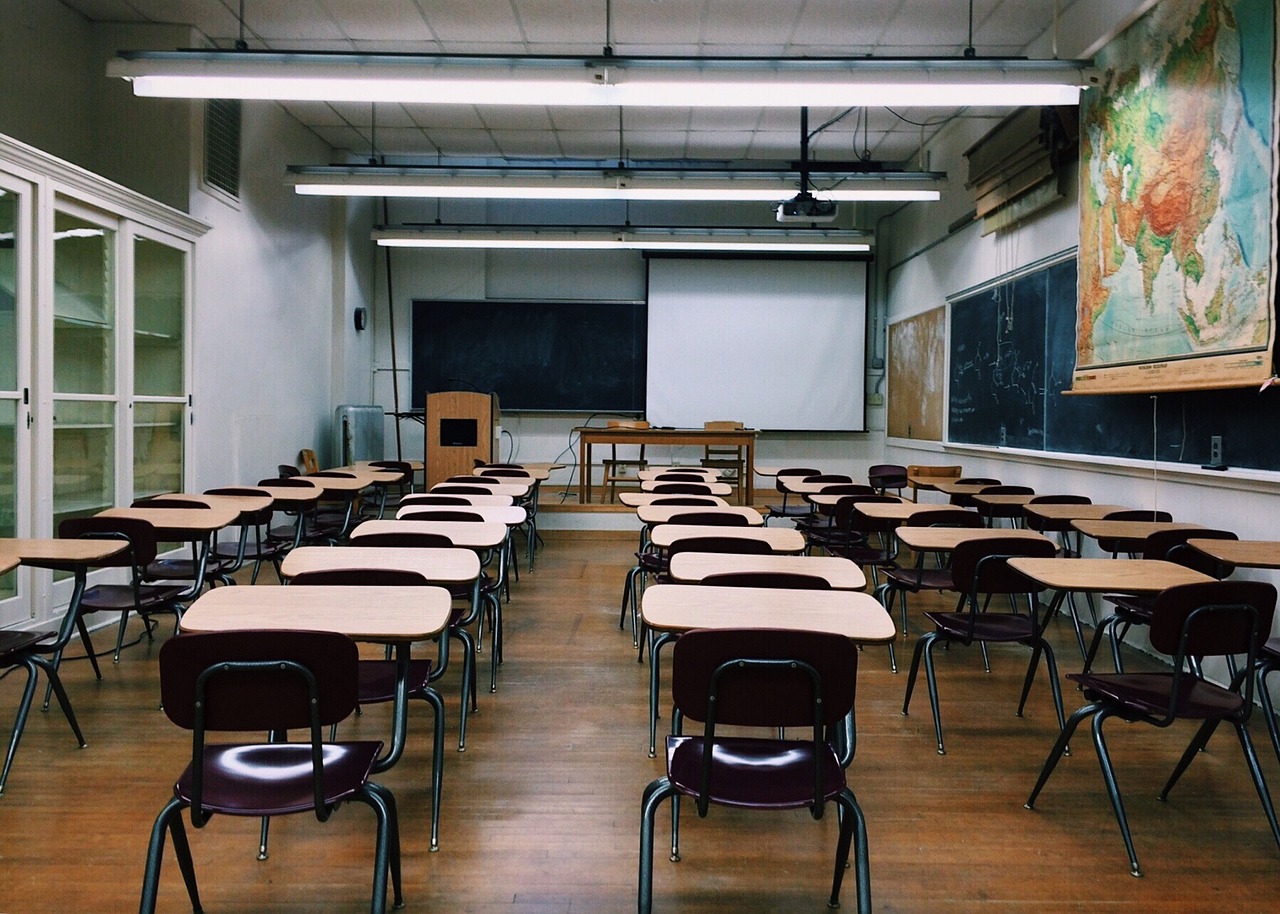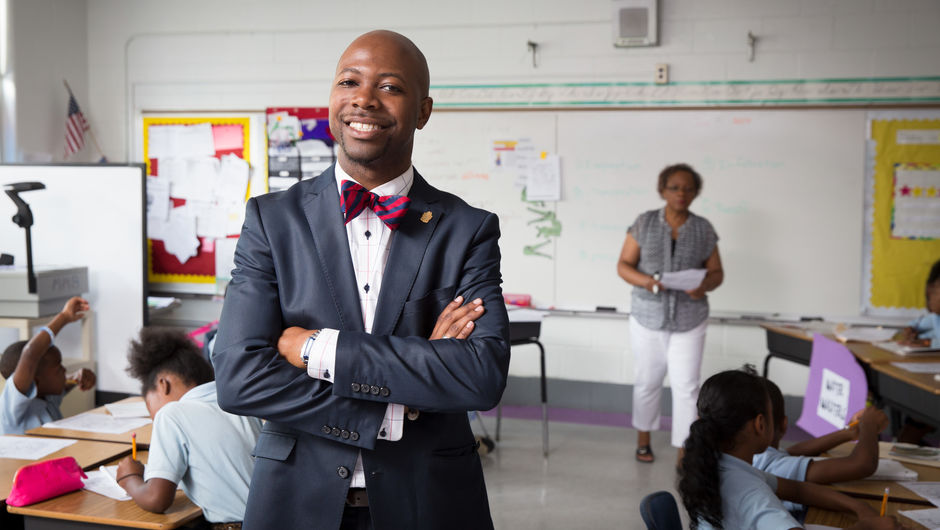You’re all signed up for the Education Slice
Thank you for your interest in our service.
Watch out for a confirmation email from our subscriptions team. Once you have confirmed you will join the community of over 35,000 subscribers who are receiving daily Education intelligence to lead, innovate and grow.
Note: Due to the nature of this message you may find this in your "promotions" or "spam" folders, please check there. If nothing arrives within a few minutes let us know. If you do not receive this email we will be happy to help get you set up.
Adding the email address [email protected], will help to ensure all newsletters arrive directly to your inbox.
Recent Editions

Education Slice
National
In major cities across the U.S., urban school districts are facing a challenging trend: shrinking student populations leading to under-resourced and ultimately closed schools. The Los Angeles Unified School District, for instance, is set to close the Hilda L. Solis Learning Academy this summer due to drastically declining enrollment which has limited educational offerings. Similar situations are unfolding in other urban areas, forcing districts to make tough choices between maintaining numerous underpopulated schools or consolidating resources, which often meets with community resistance. The trend, exacerbated by lower birth rates, migration patterns, and the rise of alternative schooling options, saw urban schools lose about 850,000 students between the 2019-20 and 2022-23 school years, according to Brookings Institution analysis. This drop in student numbers has led to "hollowed-out" schools—buildings with too few students to justify their operational costs. Although smaller schools can foster a closer-knit educational environment and have historically shown benefits such as higher graduation rates, they struggle with high per-student costs and reduced program diversity. Decisions to close schools are fraught with educational and political difficulties. San Antonio Independent School District, for example, plans to close 15 schools next year, a decision driven by the need to distribute educational resources more effectively. These closures highlight broader societal shifts and raise questions about how urban educational systems can adapt to changing demographics without sacrificing quality or community trust.
Full Issue
Education Slice
California
A pair of reports have highlighted the vulnerabilities and weaknesses in oversight and auditing of California charter schools. The reports, issued by the Legislative Analyst’s Office and the Anti-Fraud Task Force of the California Charter Authorizing Professionals, have called for actions to address and deter future attempts at fraud by charter school operators. The reports emphasize the importance of oversight in protecting public funds and maintaining public confidence in the education system. The scandals involving charter school operators A3 Education and Inspire Charter Schools, which resulted in the theft of millions of dollars, have exposed the lack of effective supervision by small school districts. The reports recommend auditing reforms and improvements in oversight, including stricter scrutiny of third-party contracts and annual financial audits. They also propose controversial measures such as limiting the ability of small school districts to authorize charter schools and establishing a statewide Office of Inspector General to investigate and prosecute financial fraud. The reports aim to bring about reforms and strengthen accountability in the charter school system.
Full Issue
Education Slice
Texas
A "deepfake" audio recording of a principal making derogatory comments has sparked serious concerns in Baltimore County, showing the damaging potential of AI in schools. The incident involved Dazhon Darien, the athletic director at Pikesville High School, who created a fake audio of Principal Eric Eiswert uttering racist and antisemitic remarks. This deepfake not only divided the community but also led to Darien’s arrest for multiple charges, including theft and disruption of school operations. The case highlights a growing issue within educational settings, where the misuse of AI technology can lead to significant harm. Principals and school officials, often public figures due to their roles, are particularly vulnerable to such attacks, which can damage reputations and lead to serious professional consequences. The ease of creating deepfakes and the challenge of distinguishing them from real recordings complicate the response even further, raising fears among educators about their potential misuse. School districts are currently ill-equipped to handle the rise of deepfakes, lacking policies to govern the use of AI and protect against its abuse. This incident underscores the urgent need for educational institutions to develop strategies to mitigate these risks, including educating staff about AI, updating policies, and perhaps even incorporating AI detection tools. As AI technology evolves, so too must the safeguards against its misuse in schools to protect educators and uphold the integrity of educational environments.
Full Issue
Education Slice
Florida
A "deepfake" audio recording of a principal making derogatory comments has sparked serious concerns in Baltimore County, showing the damaging potential of AI in schools. The incident involved Dazhon Darien, the athletic director at Pikesville High School, who created a fake audio of Principal Eric Eiswert uttering racist and antisemitic remarks. This deepfake not only divided the community but also led to Darien’s arrest for multiple charges, including theft and disruption of school operations. The case highlights a growing issue within educational settings, where the misuse of AI technology can lead to significant harm. Principals and school officials, often public figures due to their roles, are particularly vulnerable to such attacks, which can damage reputations and lead to serious professional consequences. The ease of creating deepfakes and the challenge of distinguishing them from real recordings complicate the response even further, raising fears among educators about their potential misuse. School districts are currently ill-equipped to handle the rise of deepfakes, lacking policies to govern the use of AI and protect against its abuse. This incident underscores the urgent need for educational institutions to develop strategies to mitigate these risks, including educating staff about AI, updating policies, and perhaps even incorporating AI detection tools. As AI technology evolves, so too must the safeguards against its misuse in schools to protect educators and uphold the integrity of educational environments.
Full Issue









